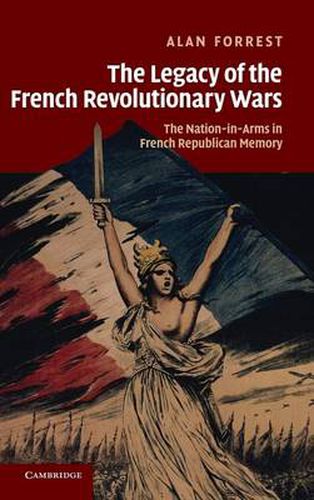Readings Newsletter
Become a Readings Member to make your shopping experience even easier.
Sign in or sign up for free!
You’re not far away from qualifying for FREE standard shipping within Australia
You’ve qualified for FREE standard shipping within Australia
The cart is loading…






A major contribution to the study of collective identity and memory in France, this book examines a French republican myth: the belief that the nation can be adequately defended only by its own citizens, in the manner of the French revolutionaries of 1793. Alan Forrest examines the image of the citizen army reflected in political speeches, school textbooks, art and literature across the nineteenth century. He reveals that the image appealed to notions of equality and social justice, and with time it expanded to incorporate Napoleon’s victorious legions, the partisans who repelled the German invader in 1814 and the people of Paris who rose in arms to defend the Republic in 1870. More recently it has risked being marginalized by military technology and by the realities of colonial warfare, but its influence can still be seen in the propaganda of the Great War and of the French Resistance under Vichy.
$9.00 standard shipping within Australia
FREE standard shipping within Australia for orders over $100.00
Express & International shipping calculated at checkout
A major contribution to the study of collective identity and memory in France, this book examines a French republican myth: the belief that the nation can be adequately defended only by its own citizens, in the manner of the French revolutionaries of 1793. Alan Forrest examines the image of the citizen army reflected in political speeches, school textbooks, art and literature across the nineteenth century. He reveals that the image appealed to notions of equality and social justice, and with time it expanded to incorporate Napoleon’s victorious legions, the partisans who repelled the German invader in 1814 and the people of Paris who rose in arms to defend the Republic in 1870. More recently it has risked being marginalized by military technology and by the realities of colonial warfare, but its influence can still be seen in the propaganda of the Great War and of the French Resistance under Vichy.